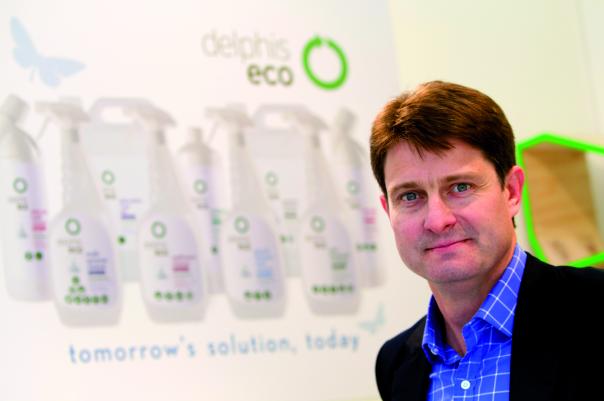
The cleaning market in the UK is huge; the Cleaning Support Services Association (CSSA) estimates it is worth a little under £10 billion, employing around 900,000 people.
As an industry it wields a lot of power and has the ability, and some say the responsibility, to drive change on important issues. And yet, bafflingly, the cleaning sector remains stubbornly stagnant on a pressing matter; environmental product development in the UK cleaning market.
What makes it so surprising is that even though the environment is creeping up the cleaning sector’s agenda, very little is changing.
The Cleaning and Hygiene Supplier Association 2010 market report highlighted the fact that two thirds of commercial customers were actively interested in suppliers offering environmental services and using eco-friendly products.
And yet the industry as a whole tends to ignore these reports in favour of the status quo, and an easy life.
I feel that a major challenge to changing industry behaviour is the fact that cleaning chemicals are a tiny line item and that the decision process is too long, so nothing happens. But industry needs to hurry up and do the right thing.
Conventional products can contain petroleum-based additives, chlorine, formaldehyde, synthetic perfumes and dyes. Conversely plant-based surfactants are readily biodegradable and products that are phosphate and chlorine free are gentler to the user and our environment.
Harmful chemicals used in cleaning products are improperly disposed of on a regular basis. The result is that chemicals enter the water system and affect the habitats of fish, water-dwelling animals and birds.
In fact, an estimated 5.7 billion pounds of toxic chemicals are released into the eco-system through improper disposal of chemicals every year, according to the Environmental Law Centre.
These chemicals affect not only the water, but also seep into land used for crops and to graze animals that are destined for consumption. They also evaporate into the atmosphere, contributing to acid rain, affecting the very air we breathe.
But who is responsible for making the changes that are so desperately needed? I think that catering operators have a major part to play here.
A survey by the Carbon Trust showed that over 50% of consumers believe that businesses are responsible for taking the lead on environmental issues, a belief that I share.
The potential exists for catering managers to lead on green best practice for all businesses; caterers have the opportunity to show that environmental-friendly choices can work in practice as well as theory.
Education will be key to changing attitudes and effecting real change.
There are many existing misconceptions about eco cleaning products; operators believe they are expensive or that they are not as effective as conventional cleaning products on the market. In the past this may have been true but this is simply no longer the case.
A case in point is Delphis Eco, the eco cleaning chemical production company that I took over in 2009. Alongside an enviable list of accolades, we have been awarded EU Ecolabel accreditation which not only proves the green-ness of the products but also their effectiveness.
I do agree that there is confusion about what is genuinely green and I want to see a ‘one goal’ attitude, where everyone is committed to a single set of green aims. I believe that by producing products that work and are competitively priced, we have set the ball rolling in what needs to be a new way for the catering industry to work – as a single team.
And don’t forget that there are many cost benefits that green cleaners offer, aside from being sold at the same price as conventional cleaners.
Eco products have a significantly reduced health and safety profile, reducing the potential for work-related sickness absence, which can cost more than just wages. They also reduce COSHH (Control of Substances Hazardous to Health) requirements, which may in turn reduce staff training costs. Even if the environment isn’t of concern, a clear business case can be made for the use of green cleaners.
Slowly and surely the message is getting through.
Operators are increasingly including the environment as part of their corporate social responsibility policies, driven by consumer demand for greater green commitment.
There is a long way to go, but there is light at the end of the tunnel.
New European legislation is causing operators to review how they interact with the environment and in doing so they are discovering the many benefits of switching to green cleaning and are seeing a robust environmental policy as good for the planet and good for business.
Delphis Eco
Delphis Eco is a leading British manufacturer of ecological cleaning products, the only UK company to exclusively produce environmentally friendly cleaning products for the commercial sector and the first to be awarded the EU Ecolabel (for cleaning products). The range of products is food-prep safe so suitable for catering facilities and washrooms. For more visit www.delphiseco.com or call 0203 397 0096.